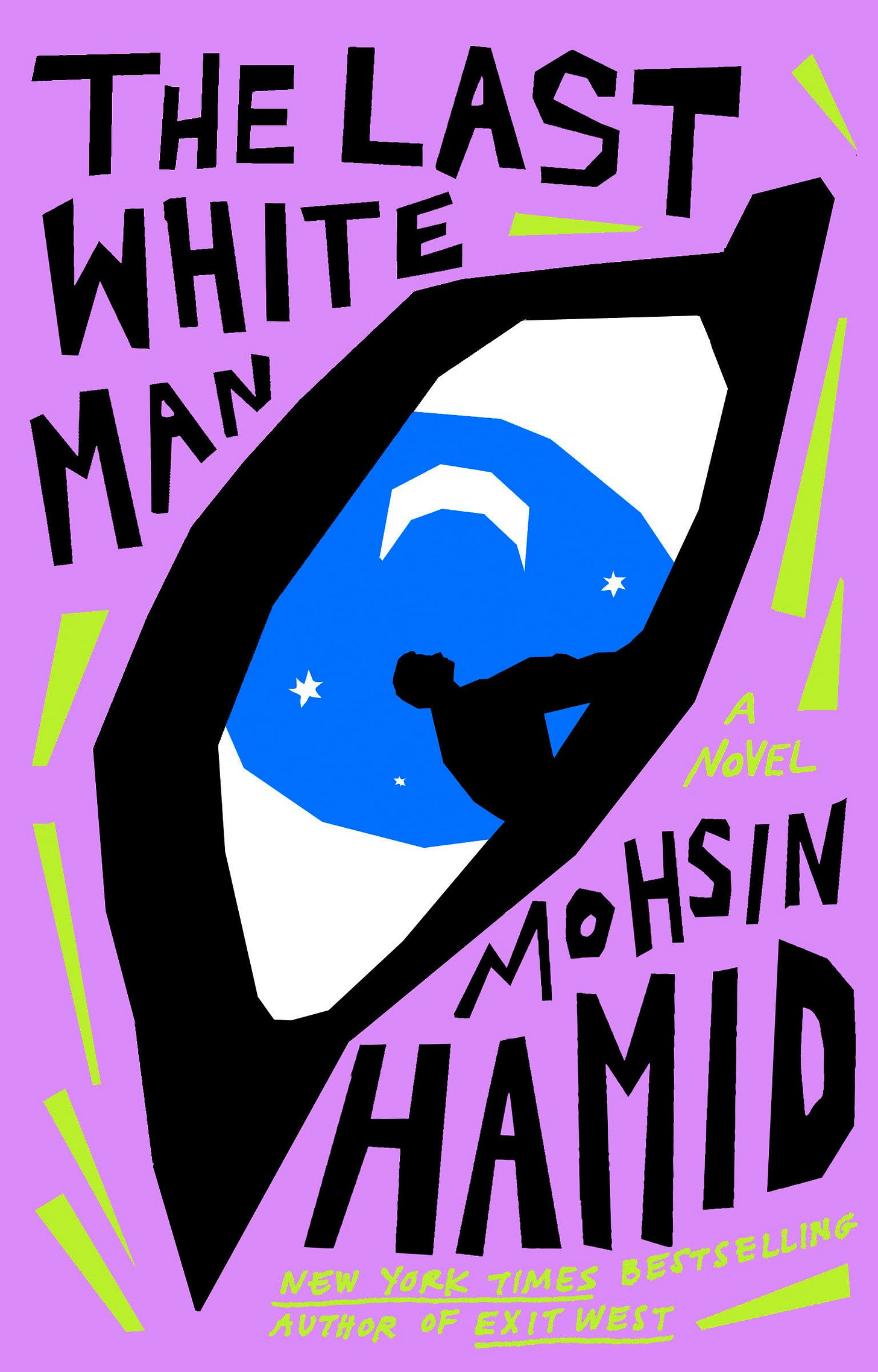The Last White Man by Mohsin Hamid
2.5/5 stars
Mohsin Hamid’s novels are hit and miss for me. But when they do hit, it’s unforgettable. Exit West, solidified him in my mind as someone who I had to read every time he came out with something new. The book was just that good. If you haven’t read it, Exit West was a commentary on the global migration crisis that used magical realism as a plot device to imagine how the whole thing would play out for both the migrants and their hosts. It took the experience of a young immigrant couple and their parents as a threadline and was one of the most moving novels I’d read in years. So I was excited to pick up his latest, years later, intriguingly titled The Last White Man. I hadn’t read any reviews and didn’t know what to expect. What I found was that the book was nearly the exact the same story as the last one, albeit told from the other side. It almost felt formulaic.
I don’t usually review novels so I’ll be careful to write this one without any spoilers. The premise of the The Last White Man is that white people are disappearing, as a result of a strange phenomenon where they simply wake up dark-skinned the next day. The deindustrialized, opioid-hit small town that the two protagonists, a young couple, live in is affected by this. Over time, without explanation, it becomes increasingly brown. The book is clearly a commentary on the Great Replacement idea of the far-right that European-origin populations are being replaced over time by immigrants from the third world. The small town changes and its residents react in different ways. They go through various stages of shock, fear, resistance, and acceptance to their changed circumstances. It seems for a moment that society may implode over the issue, with militants setting up checkpoints and dark whispers of killings taking place. The change is hardest on the nostalgic older generations, who had already borne witness to the economic and social decline of their town due to deindustrialization and opioids. The younger ones don’t know that to do, but most seem to accept it with less angst. Its just something that happens and disorients them a bit. Then they keep living.
This is an optimistic book, in the end. But it wasn’t the hard-won and ultimately more convincing optimism of Exit West. The story does a reasonably good job of portraying the fears of people living in societies undergoing demographic change. It even describes well the impact of the internet on the worldview of elderly people, and those suffering self-esteem issues whom life has generally dealt a tough hand. Whereas Exit West convinced me that the migrant crisis would end in something less than civil war, The Last White Man came to its conclusion with far less drama. There wasn’t enough crisis in the narrative to convince me. It may have been because the books were so incredibly similar, right down to the familiar relationship story, caring for aged parents, and science fiction elements, that I kind of knew what to expect throughout. I wouldn’t say the book “missed,” but if it hit, it made contact lightly.
Yeah, I’ll keep reading Mohsin Hamid’s books. They’re short and pleasantly written even when they don’t blow me away. It may have been that this book was written more for white people themselves, who could then go through the experience of imagining what it would look like if they and their families suddenly crossed the racial divide. I’ll be curious to what others have to say about it.

